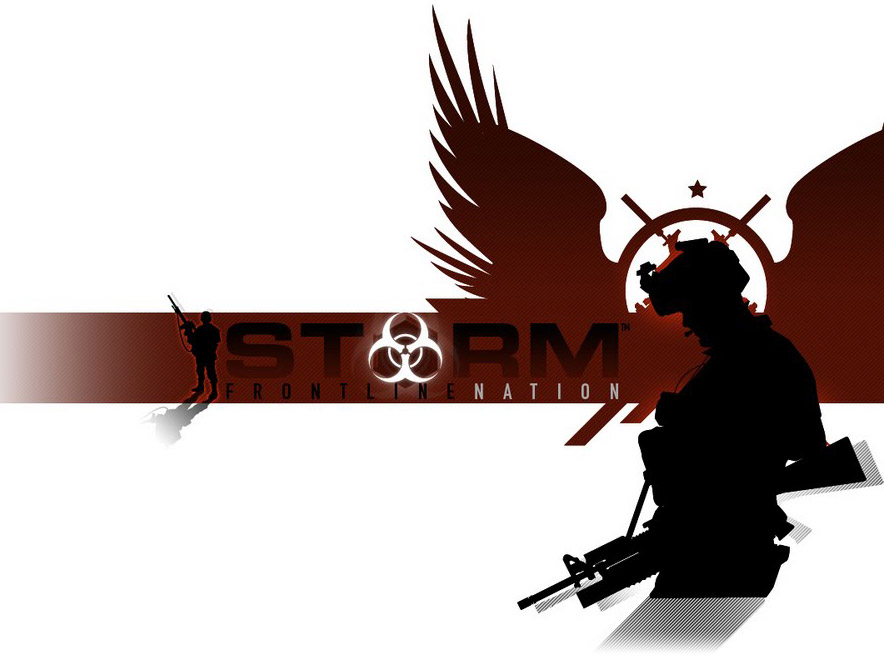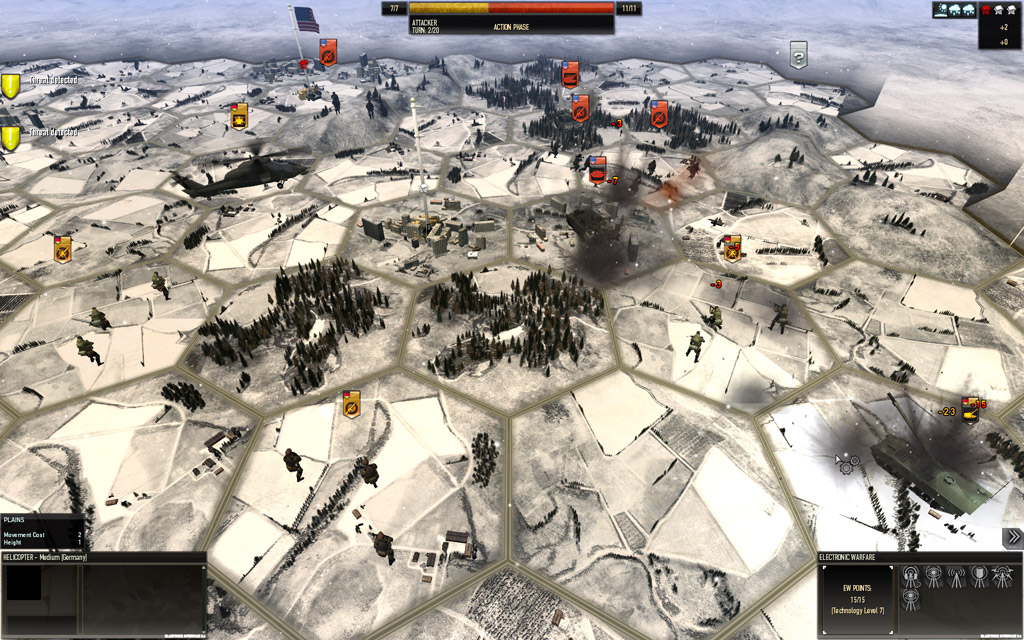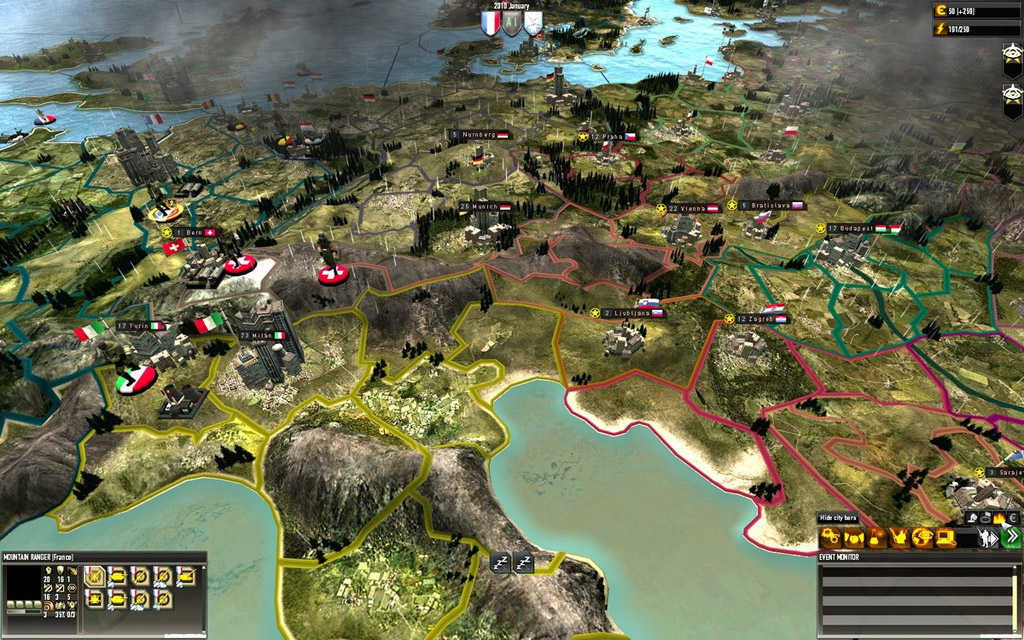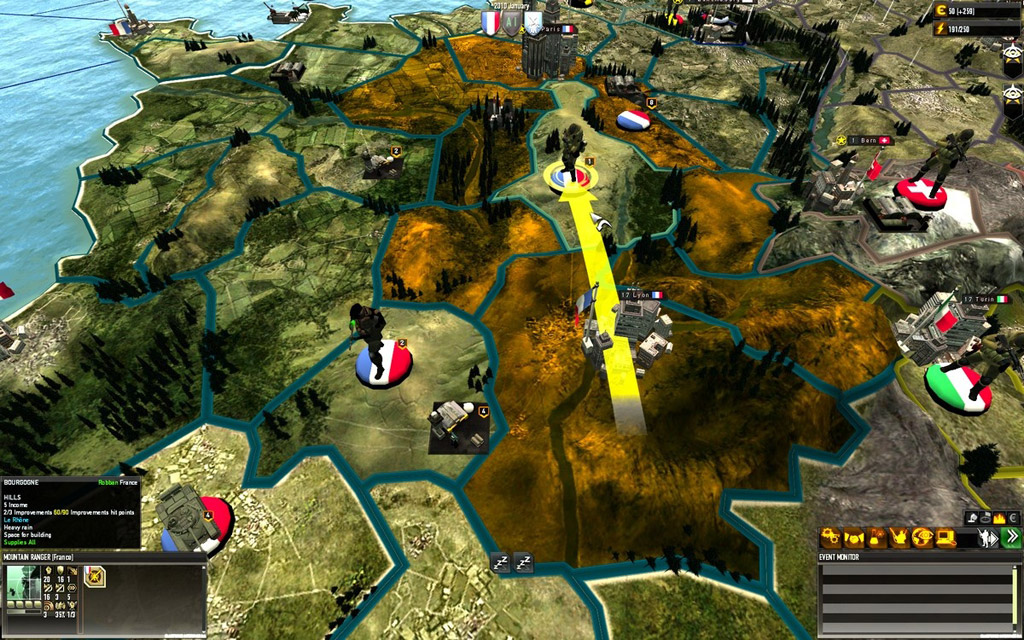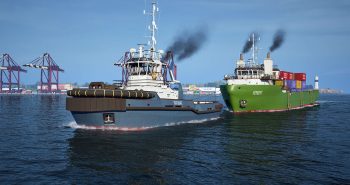Colossai Studios and SimBin Studios have released a brand new turn based strategy game into the wild, named Storm: Frontline Nations. Storm: Frontline Nations is based in today’s Europe and North Africa political world. Let’s get this out in the open first; I have never been a good strategy player, whether it is turn based or real time. I love the plotting and the moving of massive armies, but I can never get the handle of gathering all the resources needed while watching my borders. While Storm: Frontline Nations makes resource gathering a breeze, there is so much going on a player can feel overwhelmed. So, I’ll try to break this game down for you and give you the perspective of a total noob when it comes to these types of games.
Story
Storm: Frontline Nations story is dependent on the nation you select at the beginning, but the end result is the same, complete and total domination in Europe and North Africa. The game utilizes only these areas for it’s campaign setting, and focuses solely on the nations that can be found here, with the exception of the United States. The U.S. begins their campaign in Egypt trying to put down a revolution and keeping our man in power. Yes, either the guys at Colossai Studios have been paying attention to recent world events, or they have one hell of a crystal ball that they used during development. I, of course, tried to play the campaign as the Americans, but struggled even getting into Egypt to start the campaign, so I switched over to the Russians in order to start off with much more resources and see how the game worked.
After each turn you take, the rest of the world takes their turns. It can be just as interesting to see what happens to the other countries while you are waiting for your turn then it is when you are actually playing. For instance, during my campaign, the Germans decided to repeat history and invade France, with the same results. I had to get a spy to Paris, Germany in order to plot my attack on the German forces. Once again, Germany proved that they could take France, but not hold it.
At the end of the day, each campaign’s story line will change, depending on your moves and the moves of the other players. This game tells a story more like a persistant world RPG, where the moves of the player and the results of those moves determine the actions of the other countries, and you are left to tell the story by the events that unfold.
Gameplay
Gameplay is precisely what you would think it would be like – very typical for a turn-based strategy game. In the campaign, you begin by selected one of a few starting nations. For this review, I selected Russia because they seemed like the easiest choice for me to get a feel for the game. You are given a certain amount of starting troops, which you can select where to place them before the game begins. You are also given a couple of starting mission objectives to give you a direction to start your world conquest. Russia’s campaign starts off in a very “cloak and dagger” sort of way. All of your early missions focus on moving your Spetsnaz and spy units around Europe to gather intel or to sabotage your enemies’ supply lines.
Movement across the map is done using your unit’s move value. The issue I had here was that it was quite easy for me to move my Spetsnaz units across Europe. It was quicker for me to move them by land then it was by air or by sea. Sure, I know that the Spetsnaz are world-class special ops teams, but it just seemed like I could run them all over Europe without any type of impediment, that is until I actually tried to use them to sabotage something, then they would die instantly.
My Achilles heel in these types of games has always been resource gathering. Storm: Frontline Nations pretty much handles that on its own. Each territory you control has a Euro amount that is automatically given to you. That way you start each turn with a set of Euros dependent on the amount of territory you posses. This resource allows you to purchase new types of infantry units, tanks, air support or sea support. It also allows you to conduct research, from different types of power supplies to chemical warfare. Part of the Russian campaign is for you to get a spy into London and research locations for a strategic Anthrax attack.
Overall, if you have played any type of turn based strategy game, like The Battle of Wesnoth or anything by SSI Games, then you will easily understand the basis for Storm: Frontline Nations. For those of you that struggle at understanding all the intricacies of these types of games, don’t panic. Colossai Games has made sure that there is a tutorial system in place for you to read about the different systems in the game. Well, I would say panic a little, because the tutorial system is massive and intricate. This game has depth that many of us casual, turn-based strategy gamers will never quite fully understand.
Aesthetics
The aesthetics of Storm: Frontline Mission are nothing special. The graphics are very static and are used mostly to tell armies apart from one another. I had an especially hard time finding political boundaries and the locations of my mission objectives at first. Once I realized where each country once and then started to determine regions within each country, it became easier for my to find my objectives. For those of you that have failed geography in the past be prepared to play this game with a detailed map of Europe.
In fact, the whole game feels like an electronic version of Risk. The graphics and sound here are just used as a tool to deliver the game to the player, not as a way to immerse the player into the game. There is no immersion or depth here in the aesthetics department, so Storm: Frontline Nations feels like a board game that you play on your pc.
Final Thoughts
What Storm: Frontline Nations boils down to is whether or not you like turn based strategy games that focuses on current European issues. If you love the idea of replaying the battle of Gettysburg, or seeing if you can conquer Europe during World War II, then Storm: Frontline Nations is the game for you. If the idea of resource management and European intrigue makes your stomach crawl, then I would strongly suggest skipping Storm: Frontline Nations.

